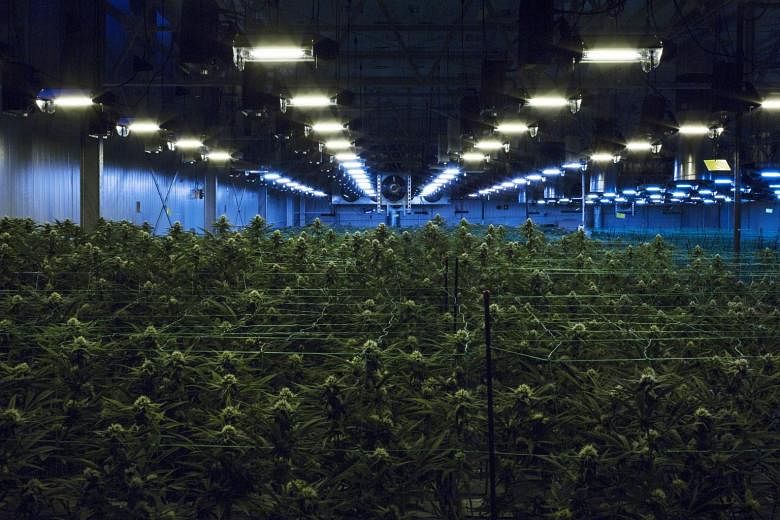OAKLAND, CALIFORNIA (NYTIMES) - The march to decriminalise drugs moved further across the nation on Tuesday (Nov 3) despite continued federal prohibition.
Oregon became the first state to decriminalise small amounts of cocaine, heroin, methamphetamine and other drugs.
And in New Jersey and Arizona, voters decisively passed laws legalising recreational marijuana. Cannabis is now legal across a large bloc of states in the West - from Washington down to the Mexican border - and well beyond.
Cannabis was also on the ballot in Montana, Mississippi and South Dakota. If all of the marijuana measures pass, cannabis will be legal for medical use in three dozen states and recreational use will be allowed in 15.
The Oregon measure would make possession of small amounts of what have long been considered harder drugs a violation, similar to a traffic ticket, and no longer punishable by jail time.
The law would also fund drug addiction treatment from marijuana sales taxes.
Even in a year when the number of citizen initiatives in states across the country was sharply down from the last presidential election, the diverse slate of measures offered a chance to gauge the mood of the nation.
In Florida, where the two presidential candidates were within a few points of each other, voters approved a pro-labour amendment to the state constitution that will raise the minimum wage incrementally to US$15 (S$20.46) an hour in 2026.
Florida becomes the eighth state to enact a minimum wage of US$15, according to the National Conference of State Legislatures, but the first state that Mr Donald Trump carried in the 2016 presidential election.
The District of Columbia has also enacted a US$15 minimum wage.
Florida's measure, known as Amendment 2, earned a place on Tuesday's ballot last December and needed at least 60 per cent of the vote to pass. With 99 per cent of the vote counted, the measure had slightly more than 61 per cent.
Under the measure, the state minimum wage would rise from its current hourly rate of US$8.56 to US$10 next September, and then increase by US$1 every September through 2026.
After that, annual increases would be tied to inflation.
A study by the Florida Policy Institute, a think tank backing the increase, found that the higher wage would directly benefit 2.5 million workers in the state.
The amendment was supported by unions and the Miami-Dade Democratic Party, and was opposed by business organisations representing construction companies, citrus farmers, hotels and restaurants.
In Louisiana, a measure supported by two anti-abortion Democrats, Governor John Bel Edwards and state Sen. Katrina Jackson, passed comfortably.
Amendment 1 would add these words to the state constitution: "Nothing in this constitution shall be construed to secure or protect a right to abortion, or require the funding of abortion."
There were 38 statewide citizen initiatives being decided across the country on Tuesday, about half the level of the last presidential election, when there were 72.
Experts attribute the decline to the effect of the coronavirus, which has made gathering signatures more difficult.
When all measures are tallied, including those placed by legislatures on the ballots, there were a total of 124 statewide ballot initiatives this year, down from 154 four years ago.

